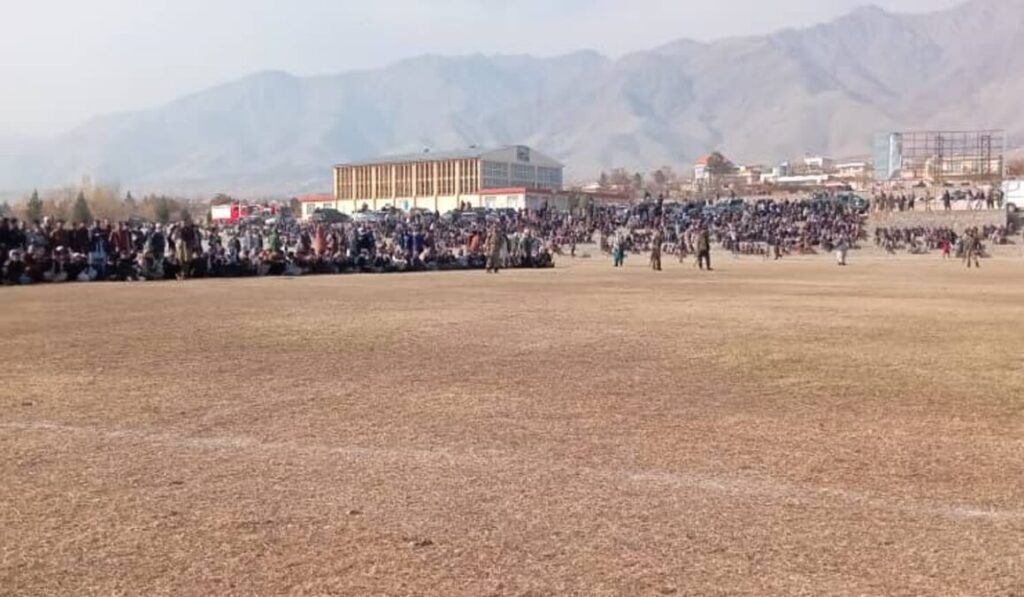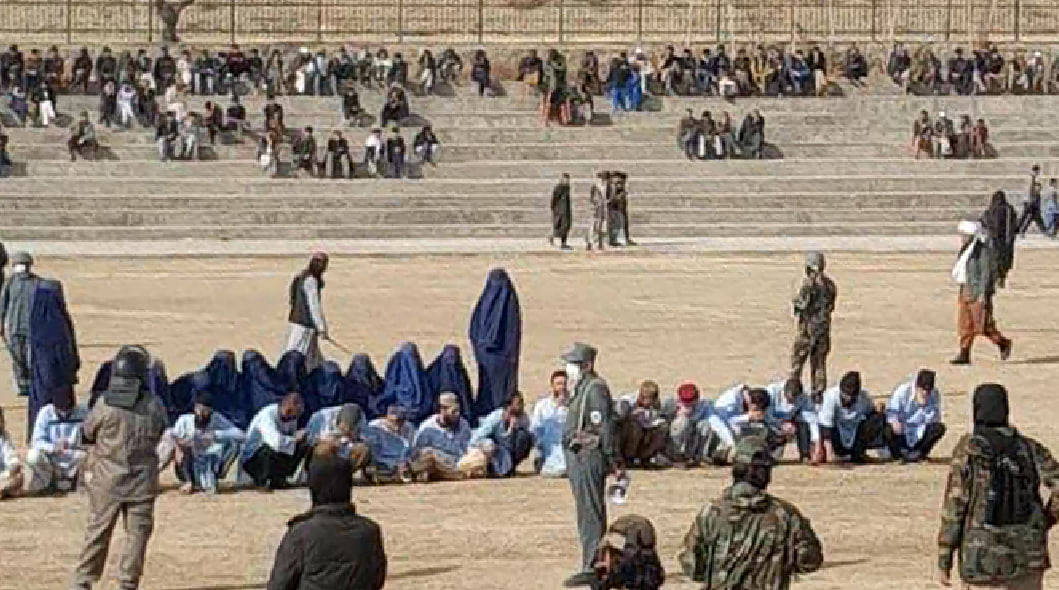Taliban have intensified their public floggings, with cases rising by 40 percent over the past two weeks compared to the previous period, according to reports from the Taliban-run Supreme Court.
The provinces of Jawzjan, Nangarhar, and Ghazni recorded the highest numbers of public punishments during this time. Jawzjan reported 22 cases, Nangarhar 15, and Ghazni seven. The punishments were carried out for alleged offenses including “immoral relationships, adultery, sodomy, theft, running away from home, and moral corruption.”
Other provinces, including Takhar, Maidan Wardak, Kabul, and Paktika, also saw public floggings. Among those punished were 11 women.
Public Backlash
Critics within Afghanistan have condemned the practice. “The Taliban are flogging people illegally. If this situation continues, people will leave Afghanistan. Flogging without a defense lawyer is against the law,” said Fawad, a resident of Farah.
Despite such criticism, the Taliban’s Deputy Minister of Military Affairs for the Ministry of Promotion of Virtue and Prevention of Vice defended the practice. “In the Islamic Emirate of Afghanistan, the Ministry of Promotion of Virtue and Prevention of Vice gives the Islamic system its identity. Non-Islamic countries do not have this blessing and honor,” he said in a recent statement.

Questions on Legitimacy and Islamic Principles
According to official data, the Taliban carried out public floggings on 90 individuals over the past month. However, some Islamic scholars have raised concerns about the legitimacy of these punishments. They argue that implementing hudood (Islamic corporal punishments) requires strict adherence to specific conditions, including freely obtained confessions from the accused, which they believe the Taliban are not following.
The Taliban’s practices have also drawn international criticism. Richard Bennett, the United Nations special rapporteur on human rights in Afghanistan, recently called on the group to end public executions and corporal punishments, describing them as violations of human rights and inconsistent with Islamic teachings.
A Continued Pattern of Repression
The increase in public punishments reflects the Taliban’s broader enforcement of their interpretation of Islamic law, which has drawn both domestic and international condemnation. Critics warn that such actions further isolate Afghanistan from the global community and deepen the country’s human rights crisis.





